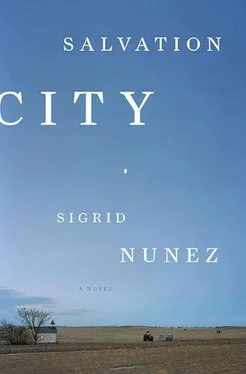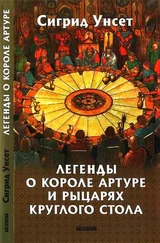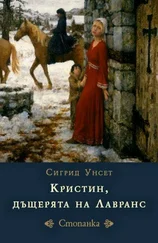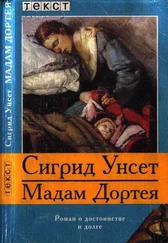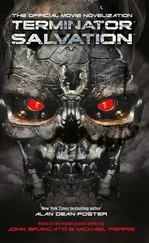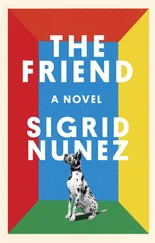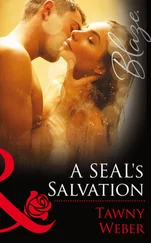None of the kids could get over it. Days and weeks passing without any school, and no one able to say for sure when they’d be going back again. The rumors that, in fact, there were schools reopening out there. Just none ready to take orphans.
“What about religion?”
“I didn’t go to church.”
“You don’t have to ‘go’ to church, son. Church happens wherever and whenever folks come together to pray and ask forgiveness for sins and worship the one true God. No special edifice required. Did that ever happen? Did people ever read the Bible together? Did anyone lead you boys and girls in prayer?”
Cole shook his head. Boots frowned, but without losing his smile, and pointed to Cole’s microphone.
The great thing about radio, PW had told him, is that people can’t see you and you can’t see them, so you don’t have to be all that nervous.
But from the moment he entered the sound booth Cole had seen them: sitting in their kitchens or in their cars or offices or shops, listening to him the way he and Tracy listened when PW was on the air, listening to every word.
He had also seen himself, through their eyes, larger than life, the world’s biggest retard.
And besides, what about the people—Mason, for one—who Cole happened to know were tuned in right now, and who knew exactly who this retard talking (or not talking) was? How was he ever going to show his face to those people again?
Through the window he could see Tracy and PW, sitting outside the booth but able to hear everything through the speakers. Whenever he glanced their way, PW would bob his head enthusiastically while Tracy flashed her widest smile, probably without realizing she was wringing her hands at the same time. Cole was aware of Beanie Gill, a young man he knew from church, sitting in a smaller booth built into the opposite wall. Like Cole and Boots, he had headphones on, and he was constantly monitoring some controls. From what seemed like another room Cole heard Boots repeating his last question, and there was a quaver in Cole’s voice as he replied that he didn’t know, he couldn’t remember.
Yet as soon as he said it he did remember. There’d been plenty of religion at Here Be Hope, he just hadn’t taken part in any of it, hadn’t been forced to. It was there that he’d first learned what a rapture child was, and he remembered how everyone—grown-ups even more than kids—trailed after those children, pestering them about the Second Coming. It was then that he’d first started to understand what the Second Coming meant. He remembered how, at night, in the crowded room, boys could be heard saying their prayers before going to sleep, just as he himself did now. Mama Ho carried a Bible with her and read from it, sometimes to herself, sometimes out loud to others. In fact, he didn’t think he’d ever forget the sound of her voice as she read, a little-girl voice that sounded cartoonish coming from such a large woman, and the way she punctuated each passage with a brief snort, like a horse or a bull. He remembered all this in the instant after he’d spoken, but he was too shy to open his mouth again. It was too late to change his answer; it would only make him look dumber. He kept quiet, avoiding Boots’s eyes. He would not look at PW, either. Shame was like a sticky substance he could feel on his scalp and under his T-shirt. Later, listeners would tell him how they’d been able to hear him breathing.
The agony went on and on (in reality, just another few minutes) as Boots tried to draw him out. He asked questions about the gangs and about the fights that had ended with somebody knifed or knocked senseless. He asked about the boy who’d hanged himself with the same belt one of the guardians, in a drunken fury, had used to beat him. He asked about the runaways and about girls who got pregnant. Using the word violated (a word he’d prepared Cole for beforehand), he asked about rape.
Cole was good at keeping secrets, but not at faking. One thing he knew he could never be was an actor. And so it was hard for him, knowing that Boots already knew the answer to every question he asked. Cole understood that by pretending not to know, Boots was just trying to make the program more interesting. But to Cole it felt not only dishonest but silly. Mostly he just answered yes or no.
“Sounds to me like a living, breathing hell,” Boots said solemnly. Cole said nothing. His throat was constricting. He felt a surge of emotion as it struck him that, in fact, it had not been hell. Though he’d longed to escape it, the orphanage had not been so bad at all. The thought brought a sizable shock—never would he have believed while he was there that he could think such a thing. But looking back now, he realized that, again, he had been lucky. And he hoped people listening to the radio wouldn’t think he wanted them to feel sorry for him. He worried that maybe he’d exaggerated when he told PW stories about the orphanage. If he could find his tongue now, he’d explain how it was mostly about hiding from the bullies, who had a way of picking on the same kids all the time anyway. You were lucky not to be one of those kids, but to stay lucky you also had to avoid them. You had to be ruthless, you had to refuse to have anything to do with them. You had to refuse to help them. Today, the memory of this shamed Cole. But it had all been so complicated. The most dangerous and despicable thing you could do was to snitch, and nine times out of ten helping someone was going to mean snitching. Still, he liked to think that if he ever had to go back, or if he was ever in that kind of situation again, he would do the right thing. It was a hard truth for him to acknowledge, how far away he was from being a hero. He liked to think if he had another chance he would act differently. He would not abandon the weak. He would battle against injustice. He would protect and defend the unlucky ones.
And there was another reason the orphanage meant more to Cole than just brutal memories, and this had everything to do with his secret life in that cavity under the stairs. And then it had turned into a blessing, not having any friends, because it meant he could disappear and no one would notice; he could hide out for hours without being missed and no one would come looking for him.
It was at Here Be Hope that Cole discovered he could sit and sketch for longer and longer stretches without getting bored or distracted, as he used to do. And for the first time he understood that he carried this in him: the ability to shut everything out—not just the unhappiness of the moment but the past with all its pain and loss and the future with all its question marks—by concentrating on this one thing, which happened also to be the thing that made him happier than anything else he knew how to do.
He imagined this was the way someone like PW or Tracy must have felt when they prayed. He himself had not yet experienced such a feeling while praying. And not that he was saying prayer and drawing were the same, he knew that wasn’t right; but in his mind they lay so close they touched.
“I have here a newspaper article.”
Cole had known Boots was going to bring up the dog.
He never knew exactly where they’d found it. There were the runaways, many of whom you never saw again, and there were the kids who sneaked in and out whenever they felt like it and who sometimes stayed out overnight or even longer—and what were you going to do about it, kick them out for good? They came back with loot like cigarettes and vodka and weed, and bursting with stories about what they’d been up to—usually, if true, even worse than what they did at “home.”
They could have found the dog anywhere. The pandemic had orphaned pets, too, and you couldn’t go far in any direction without seeing strays. Stray dogs formed packs, some harmless but others a danger to anyone they happened to scent. Dogs didn’t get the flu, but neglect or violence had been killing them and other animals off by the score, their unburied remains yet another danger.
Читать дальше
